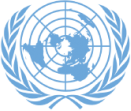Mr. Chairman,
Hon’ble Ministers,
Under-Secretary-General and High Representative for LDCs, LLDCs and SIDS,
Distinguished Delegates,
First of all, I would like to commend the leadership of Bangladesh as global coordinator of the Group of LDCs during such important time of implementing the landmark outcomes of the UN processes, including the 2030 Agenda for Sustainable Development adopted last year. I also commend the role played by the United Nations Secretary-General as well as OHRLLS team for the cause of LDCs.
Mr. Chairman,
Our meeting this year is significant since 2016 is the first year of implementing the universal and transformative 2030 Agenda for Sustainable Development with a vision of ensuring that no one is left behind. In this specific context, it is important to reflect once again on the issues, problems and constraints of the least developed countries who carry the largest number of people who are poorest and also the furthest behind sections of the global society. We must seek to meaningfully contribute to their efforts for their sustainable and transformative development.
The LDCs continue to face multiple structural challenges and constraints to development and as a result plunge into an unfairly long struggle for development. Amidst widespread poverty, malnutrition, unemployment, poor infrastructure and scarce resources, they also have narrow production and export bases, stagnant trade and investment flows, diminishing productivity growth, weak land and natural resource governance etc. These challenges are further compounded by new and emerging challenges such as climate change, incidences of natural disasters, conflicts. Without a structural transformation that tackles institutional and capacity constraints, LDCs will continue to remain vulnerable to various economic, social, and environmental shocks.
The Istanbul Programme of Action embodies a robust and revitalized global partnership to address these problems facing the LDCs and tangibly support them in their development struggle. Half way down the road, the ambition of enabling half of the LDCs meet the criteria for graduation looks still far away from reality. This is the reason why Nepal has always maintained that the IPoA should be implemented in its letter and spirit. The priorities outlined in the IPoA and as reinforced by the Mid-Term Review of the IPOA to overcome the LDCs’ development challenges are fundamental to the overall development of these countries. Similarly, the remainder period of the IPoA implementation coincides with the first five years of the Agenda 2030, requiring a perfect alignment with and integration into the implementation of the Agenda 2030. As highlighted in the MTR of the IPOA Outcome Document, we should ensure a strong synergy and coherence between the implementation of these two important processes.
Nepal has highlighted from time to time that the resource gap poses the greatest challenge in the implementation of both the IPOA and the Agenda 2030. Our national efforts for achieving the SDGs need to be compounded by adequate international support measures. Enhanced ODA, technology transfer including in the agriculture sector, infrastructure building, investments, enhancing trade capacity and mitigating and adapting disaster and climate change risks and vulnerabilities etc. are extremely important.
Mr. Chairman,
Following the adoption of the Istanbul Programme of Action, Nepal announced its ambition to graduate from the LDC category by 2022 with an aspiration for emerging as an inclusive, equitable and prosperous middle income country by 2030 by fully integrating the IPOA and other plans into its national plans. Nepal has also done its utmost to integrate the SDGs into its new development plan, July 2016 to June 2019 by putting in perspective the reconstruction works with a view to build back better and smarter, despite the fact that there are immense impediments to the sustainability of our development, such as landlockedness, climate change, natural disasters, shortfall in capacities and weak means-of-implementation. It is also important to mention in this connection that the new constitution drafted by the elected representatives of the Nepalese people which incorporates universally accepted democratic and inclusive values and norms, would help create conducive environment for implementation of the IPOA in synergies with the SDGs for the development and prosperity of the country.
To conclude, Mr. Chairman, I would like to stress on three points: first, we should continue to push for adequate support to our plans for achieving the SDGs. Second, there should not be any further time lag as we have spent almost one year talking about the implementation of the SDGs, which would ultimately falter the momentum of implementation just like in the case of MDGs implementation fifteen years ago. And Third, we should maintain a proper sequencing of SDGs by taking into account a longer-term sustainable development vision that goes beyond 2030.
I thank you.


